Denis Villeneuve on Making a 'Dune' That Broke the Curse
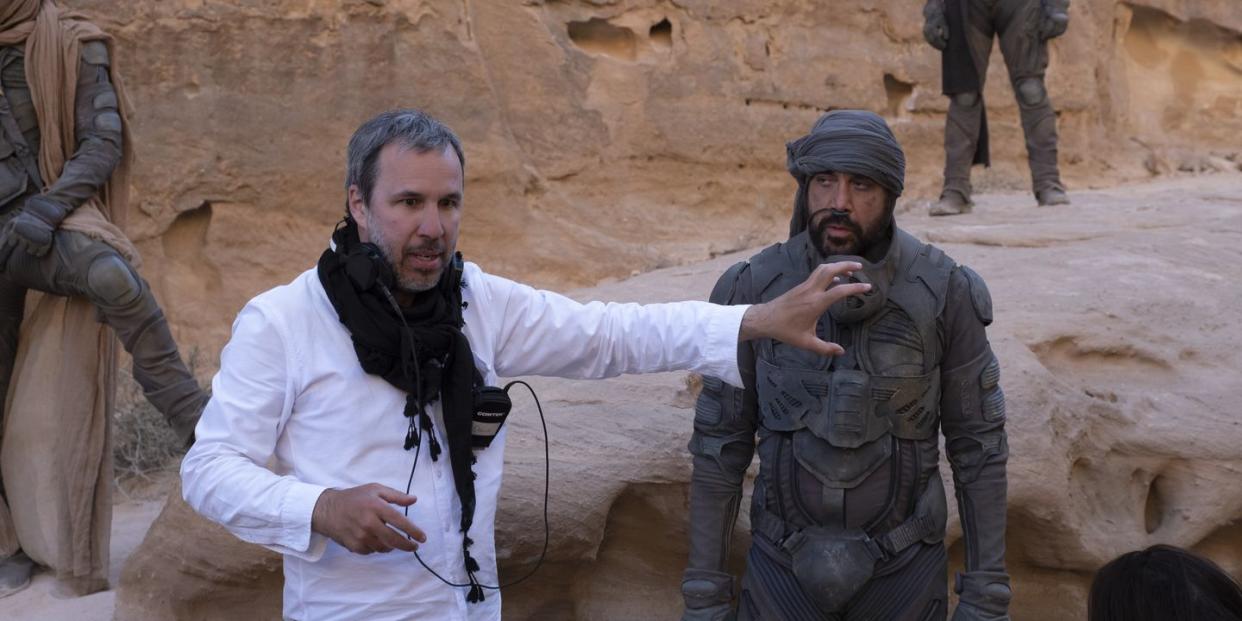
When he was a teenager, Denis Villeneuve fantasised about turning Dune into a film worthy of the book, but as a boy living in a village on a stretch of river between Montreal and Quebec City, the fantasy was as out of reach as the constellation of planets in Frank Herbert’s seminal 1965 novel.
Villeneuve, 54, makes expansive and beguiling films which journey into the unfamiliar, like the widescreen science-fiction blockbusters Arrival and Blade Runner 2049, or probe the dark recesses of the world we already inhabit, as in the brutal thrillers Prisoners and Sicario, and his breakout debut, Incendies.
“I love the idea of infinity bringing you closer to yourself,” he says of the way he uses vast landscapes in contrast to the constrains and struggles inside his character's mind. “There’s something about extremes, and Dune is definitely about that.” Villeneuve is in London to promote Dune and painfully polite in his hushed Québécois accent as he apologises for the jet-lag he is suffering from.
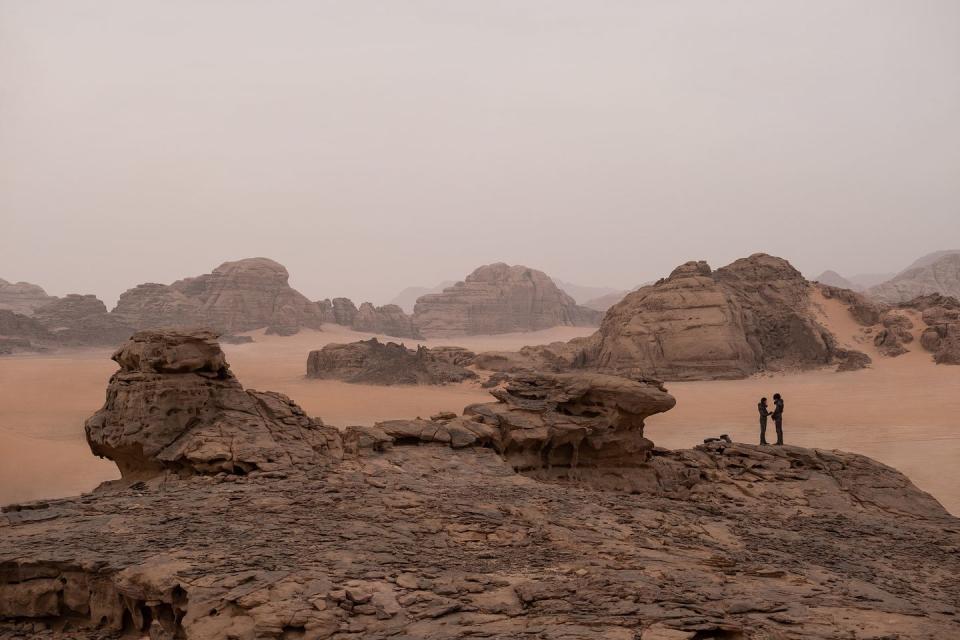
Set in an interstellar society where houses rule over different planets, Dune follows Paul Atreides as his father accepts stewardship of planet Arrakis, a land where the precious resource of spice is mined and the race of people indigenous to the planet live under authoritarian rule.
Now, after a pandemic-induced delay, which made the director (momentarily) wonder if Dune really is as cursed as legend has it, his long-held dream is finally landing on earth, in a starry adaptation lead by Timothée Chalamet and Zendaya, and also featuring Oscar Isaac, Javier Bardem and Jason Momoa to name a few.
The director sat down with Esquire to discuss topics such as our collective nightmarish inaction on the climate catastrophe, the legacy of violence through generations, and how he almost added another 45 minutes to Dune's running time.
How did Dune first come into your life?
It was when I was 14 and in a bookstore. I was drawn to this beautiful cover that was designed for the French edition in the Seventies, with a Black man with beautiful blue eyes in the desert. I think when you read a book you make your own mental movie and at the time I was starting to understand the job of a director and getting more interested by what was happening behind the camera. I was drawing storyboards with a friend of mine, but it was all fantasy because I was a young student in small village. It was later, as I got more and more experienced, that I started to think about a potential Dune movie.
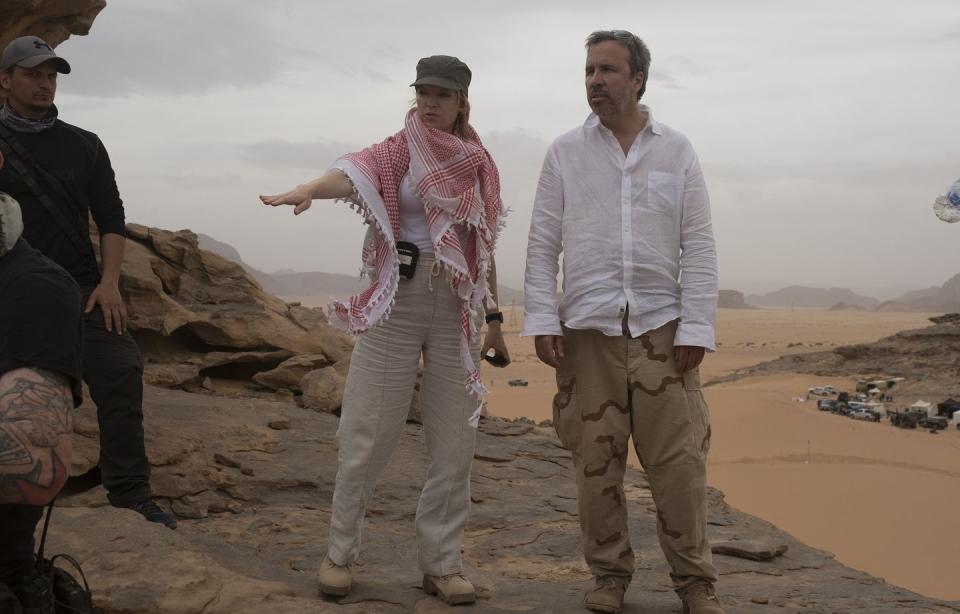
Since Alejandro Jodorowsky's failed attempt in the Seventies, and later David Lynch’s 1984 adaptation, there is a narrative that Dune is cursed. Were there any moments in making this film that you thought that might be true?
Well, when the pandemic hit I was like, ‘here we go’, but I don’t believe there’s such a thing [as a curse]. Of course it’s not an easy book to adapt, but the big difference with my predecessors is today’s technical tools. There’s things we can do with computer technology that was not possible 30 years ago. I was not thinking about what has been made before, I was just focusing on my love of the book.
There are many elements of the story, themes of race, the demand for resources, climate anxiety, and the need for family and community, which have become even more relevant in the time the film was delayed
Yes, the thing that is very sad I would say is that the book became more relevant as time went by. There’s several topics, as you rightly say, like the environmental themes, the mixing politics and religion together, the danger of messianic figures, that became more relevant, and that’s one of the reasons it made sense to make a new adaptation.
The film feels grounded in our world, even some of the technology seems like an extension of what we already know. Was it important that these planets felt within our reach?
I wanted the technology and the scientific aspects to be as realistic as possible and people to believe in what they were looking at. If the technology feels familiar then people will be able to focus more easily on the themes and ideas the movie conveys. Paul is a character that has some strange powers but I wanted to make sure that you can explain almost everything scientifically. I love that, I think it makes it more human and more interesting that he’s not an ultimate super-being but someone that has abilities that are enhanced by drugs. I thought it was more powerful to try to bring the movie closer to science fiction than fantasy.
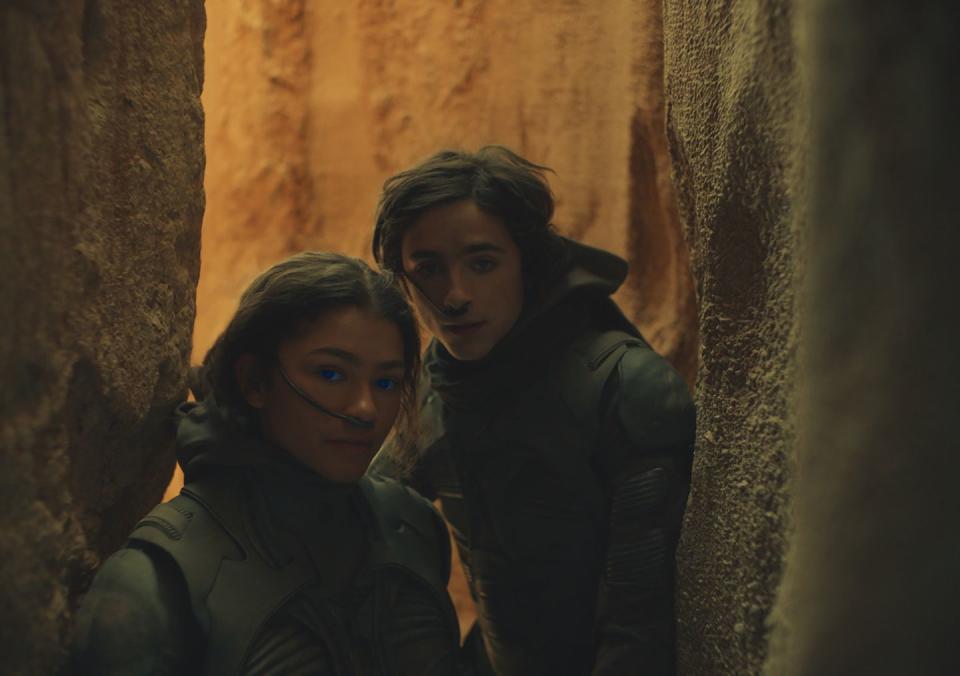
You’ve shot several films in the desert, are you familiar with how demanding it is by now?
It is always challenging because of the logistics of taking care of a lot of people but it’s just too rewarding [for] what you can capture with a camera. I would never have been able to do this movie in a backlot or an unnatural environment. Nature is the god in Dune and biology is the religion, so I wanted to get close and be inspired by the elements. We had two desert shoots and to feel that pressure of being deep in the desert gave us a lot of information.
That kind of vast natural landscape is a common feature in your films, what appeals to you about that sense of scale?
I love to study the impact of the landscape on the psyche and I’m deeply inspired by the shape of a mountain or the shape of a human face. In Dune, we are following a young man on an introspective journey: the deeper he goes into a landscape the more he learns about himself. The desert is an amplifier of introspection and a very meditative space.
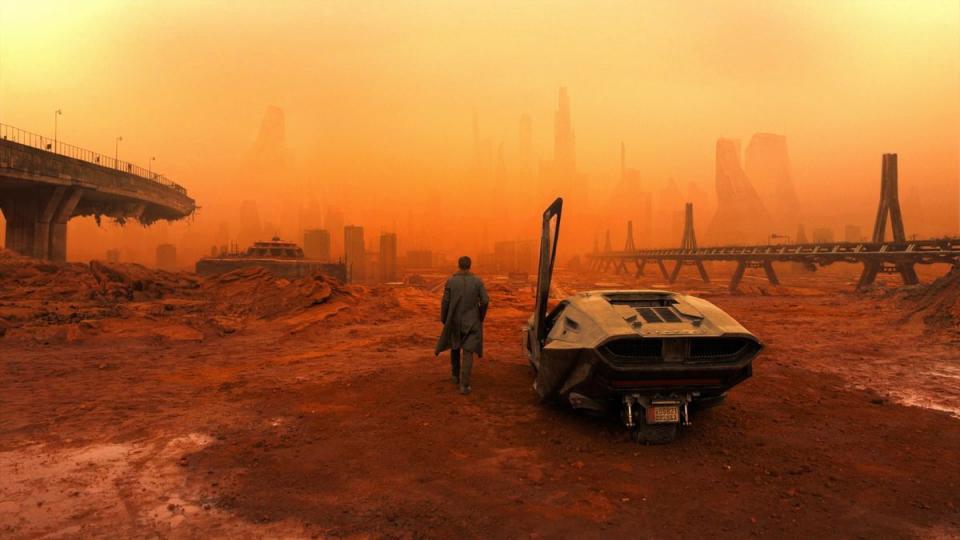
Do you feel that talking about science fiction or other genres limits the way that people see films?
Some directors are very good at mastering the code of genre, they will do a drama or a sci-fi and obey certain laws. Me, I just like to blur the lines and I don’t like boxes. I don’t approach science fiction by trying to embrace specific codes, I just love it because it allows me to explore the human condition but with the proper distance. It means I can tackle more difficult subject matters like religion without offending anybody and with total freedom. I will say that I don’t like the box of genre.
So when you were making something like Prisoners you weren’t conscious of hitting any classic thriller beats?
I think that as I’m diving into a project my preoccupations with storytelling are the same: I’m focusing on the inner journey of the characters going down a path. I don’t try to limit myself to rules. Directing Prisoners I had the same preoccupations as when I was directing Dune from a narrative point of view.
What is different about making a blockbuster of this size?
The big difference is the amount of people between my car in the morning and the camera. Making Dune, what is different is that I wanted the movie to be seen by a younger audience, because I discovered the book when I was 14, and so it made total sense to me that this movie should be watchable by a younger audience. Most of my movies in the past have been rated R because of violence, and so I made sure the violence is more suggested and less graphic.
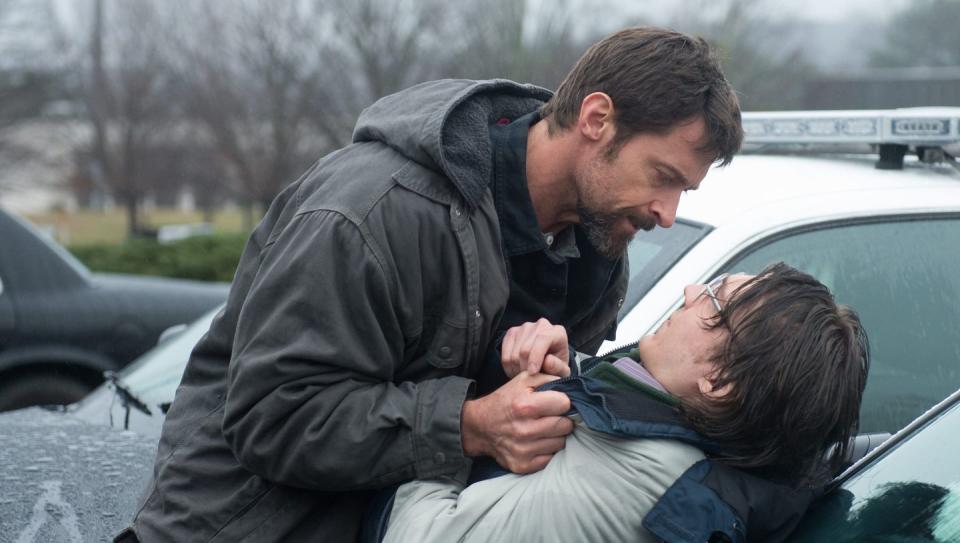
Why do you find yourself returning to the idea of violence and how it marks people?
I think I’m obsessed by the idea of cycles and repetition, the fact that violence creates violence, and how we can break the cycle and be free. How can we evolve as human beings and stop repeating our mistakes is something I’m obsessed with, and it’s a theme that is recurrent from one project to another.
There’s also this fear of the unknown and what it can do to us that crops up in your films
Fear or a fascination, like vertigo, there’s something about a deep fear but at the same time a fascination about the limit of the known. When you get into the unknown there’s that frontier which bring an excitement and a fear. It’s something I love in other movies and I’m trying to explore more in my own work.
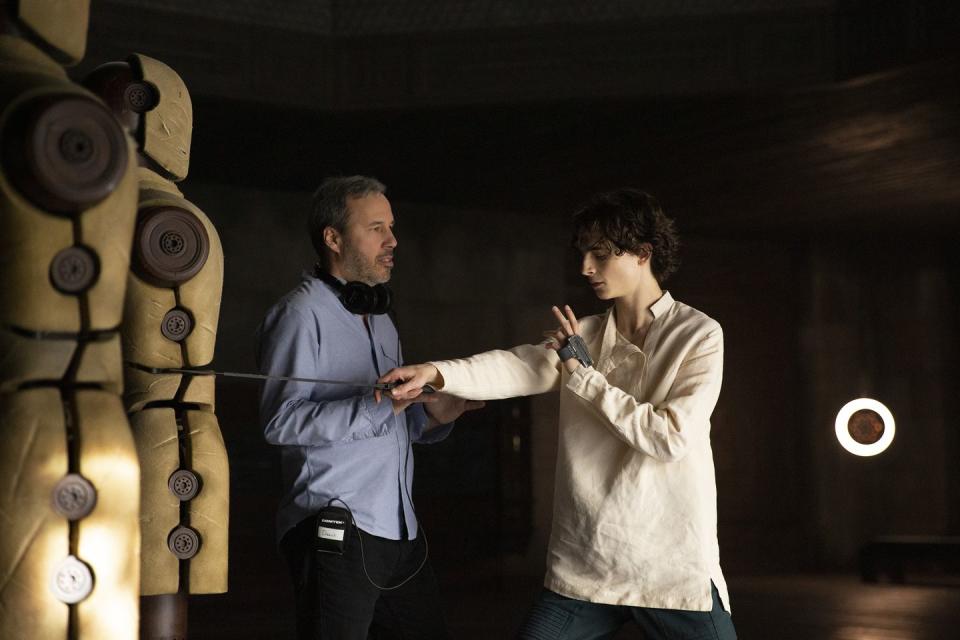
Does that sense of fear tie in with the climate anxiety in Dune?
Definitely. I was raised with the fear of a nuclear apocalypse but it was a threat, not something that was happening. Here we are facing a force that is happening. It’s nightmarish to witness us not reacting to climate change right now.
This is only the first film of two, how did you decide which part of the story to end this chapter at?
My dream was to shoot part one and two simultaneously but it was too expensive and so I agreed to do part one and wait to see the reaction. The truth is at the beginning we tried to end the movie a bit later in the story where Paul and his mother Jessica meet with the Fremen and there’s some initiations where they get deeper into the culture, [but] it felt like the beginning of something new. Also it was kind of unbearable after two and a half hours to add another 45 minutes.
Dune is in cinemas now
You Might Also Like


